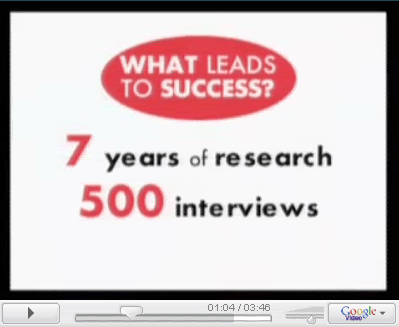Dear Friends,
In real estate, an agent negotiates all the time.
You negotiate with your clients (e.g. retainer fee, length of agreement, service fee, bonuses, etc.), with other agents (e.g. referral fees and co-brokes), with third parties (home inspectors, appraisers, title companies, etc.), and most importantly, for your clients (e.g. price, allowances, contingencies, timing, personal property included/excluded, earnest deposit, payment of financing/closing costs, deadlines, etc.). Then when you become more successful you can even negotiate with your broker (e.g. commission splits, monthly fees, advertising costs, etc.)!
You have all these daily opportunities to practice your negotiation techniques and to hone your skills. Over time, you might get pretty good (of course training speeds the process and ensures you do the right things so you do get better!). But how do you really know how good you are at negotiating? How can you tell if you've agreed to less than what you should have? How do you know if you got more than the average negotiator? How do you know if you left money on the table or did so well you should get a bonus?
Here are some ways to tell how well you've done after a negotiation is over:
1. If you are the listing agent, call the buyer's agent and ask casually "Would the buyer have paid more if we had negotiated harder?" If the buyer's agent starts choking from laughing so hard, that's probably a good indication you left money on the table.
2. If you receive 3 fake $10,000 bills in the mail from the other agent with a note saying "you left this at the closing table" then you probably could have done better.
3. If you have a "commissionectomy" performed (i.e. you sacrifice part of your commission to get the deal closed or to keep a client happy) prior to closing, you most likely could have done better.
4. If your client fails to give you their new phone number and returns your mail, you probably could have done better.
One way to know how well you did in a negotiation is to hire an impartial third party observer (who happens to be an expert negotiator!) who observes the entire negotiation and then gives you feedback on what you did well and how you can improve. Not very practical and probably a good way to eat up all your profits.
In the absence of an independent observer we are most often left to self-evaluate our own performance. This is very tricky to say the least! If you believe you are a good negotiator you will likely recall only the parts of the negotiation that prove what you believe to be true (known as confirmation bias). As human beings we have a natural tendency to want to view our own experiences as fulfilling or flattering. So it's not surprising that when we self-evaluate, we conclude we are better at something than maybe we really are.
But if that's our only choice, then we need to prepare ourselves as best we can.
Perhaps the best way to prepare ourselves to self-evaluate our own performance is to take training that will not only allow us to make a better determination of how well we did in the negotiation, but also enable us to do a better job for our clients (and ourselves).
For example, if you have been taught how to explore the limits and boundaries of the other party, you will be better at determining how close you came to that limit or boundary. With professional negotiation training, you will be able to establish the other party's upper or lower limits. You will know how to ask questions of the other side to zero in on what's really important to them. If you are working with another collaborative agent (and you hopefully will be!) the two of you can explore potential options that will meet the needs of both parties. That doesn't necessarily mean a 50/50 split. Power in a negotiation is seldom even. One party will normally get more of what they want than the other party. But in a successful negotiation both parties get enough of what they need and want to reach agreement.
Ask yourself this question:
If I had to hire an agent to help me buy or sell my most expensive financial asset, wouldn't I want (expect!) them to be a professionally trained negotiator?
Your answer should be "absolutely!"
Ask your self this additional question:
Who does the negotiating in a real estate transaction?
Answer: the agents!
The clients set the terms and goals, but the agents are the actual participants in the verbal exchanges designed to influence and persuade. How do you know if you are using THE most effective influence techniques?
If you have never taken professional negotiation training you simply don't know what you are missing.
You basically have 2 choices:
1) continue along without taking any professional training and hope you are doing it right.
2) take professional negotiation training and find out for sure.
Which choice to you think your clients want you to make?
On Your Team
Jeffrey Stanton ITI, CLC, CNE, WOW
Your Trusted Advisor For Life
http://www.YourProfessionalDevelopment.com
Certified negotiation Expert (CNE) Designation Training


































No comments:
Post a Comment